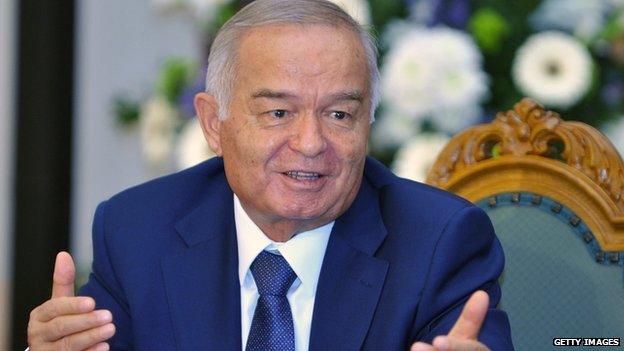Uzbekistan profile - Leaders
- Published
President: Islam Karimov

Islam Karimov has dominated the leadership since 1989, when he rose to be Communist Party leader in then Soviet Uzbekistan. The following year he became president and continued in the post after independence.
A referendum held in 1995 extended his term until 2000, when he won presidential elections unopposed.
A further referendum in 2002 extended the presidential term from five to seven years, but the expiry of his term in January 2007 went largely unnoticed.
He gained another two terms following elections in December 2007 and March 2015, both of which opponents dismissed as a sham.
Mr Karimov takes a ruthlessly authoritarian approach to all forms of opposition, using the danger of Islamic militancy to justify the absence of civil rights.
In recent years the question of the succession to President Karimov has been aired abroad, with his elder daughter Gulnara often highlighted as his potential heir.
But an apparent power struggle in late 2013, coupled with several money-laundering investigations abroad, led to Ms Karimova being placed under house arrest.
In 2014, prosecutors charged Ms Karimova - hitherto one of Uzbekistan's most powerful political and business figures - with belonging to a crime ring that had stolen £40m ($65m) in assets.
Her fall from grace has been attributed to a falling out with her mother and sister, as well as a rivalry with the powerful head of the Uzbek security services, Rustem Inoyatov.
Parliamentary elections were last held in December 2014. Parliament carries little political weight and is seen by critics as a rubber-stamp for the president.
It meets only a few times a year to approve government policies. No genuine opposition operates in the country legally, and almost all opposition leaders are in exile.